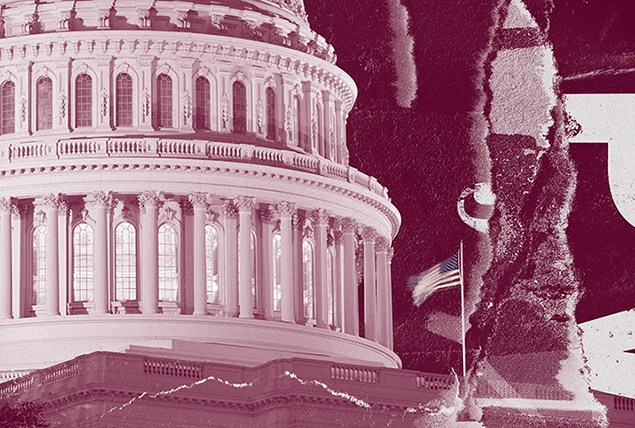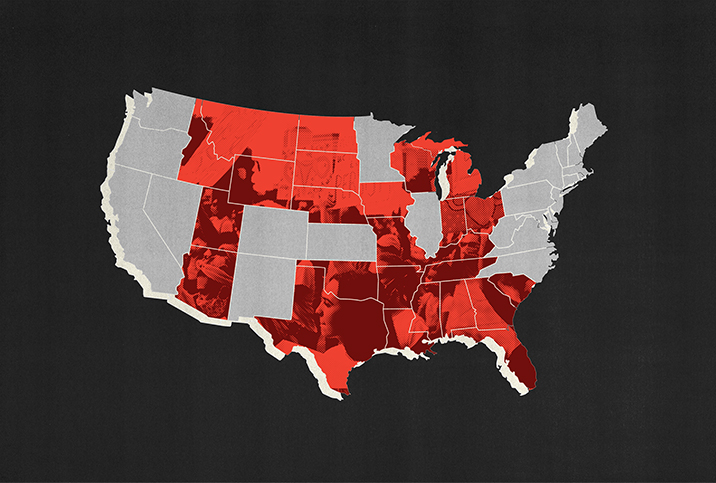New Pregnancy Fairness Act Includes Provisions for Abortion

Key Points
- The United States Equal Employment Opportunity Commission stresses that, in most cases, employers should grant modifications for workers without difficulty or requiring proof, such as a doctor's note.
- This new legislation provides qualified workers with access to reasonable accommodation for a broad range of challenges related to pregnancy, childbirth and related conditions, including miscarriage, fertility treatments, postpartum depression and abortion.
- The act will affect an estimated 1.5 million people per year, including pregnant and birthing women and those who require time off from work to recover from miscarriages or abortions.
Workers are entitled to "reasonable accommodation" for a range of pregnancy conditions, including postpartum depression, miscarriage, stillbirth, abortion and fertility treatments, according to new federal regulations for enforcing the Pregnant Workers Fairness Act (PWFA).
The United States Equal Employment Opportunity Commission (EEOC), responsible for enforcing the new pregnancy-related medical conditions in the law, released its finalized guidelines for implementing the statute on April 15, 2024.
Although the act passed with bipartisan congressional support in December 2022 and took effect last summer, the final regulations provide more detail on the types of people and circumstances it covers and how employers and the courts should uphold it.
What is the Pregnant Workers Fairness Act?
The Pregnant Workers Fairness Act (PWFA) requires employers to make reasonable accommodations for qualified employees or applicants with known limitations related to or affected by pregnancy, childbirth or related medical conditions unless that accommodation imposes an "undue hardship," according to the EEOC.
Other federal regulations, including the 1978 Pregnancy Discrimination Act, already make it illegal to discriminate against employees or applicants based on pregnancy and related conditions.
Why wasn't the 1978 Pregnancy Discrimination Act enough?
Labor and women's rights advocates argued these laws—which only required pregnant women to be treated the same as other employees—was insufficient and did little to guarantee workers access to necessary accommodations.
Many employers only granted pregnant and postpartum workers' requests if they could prove their limitations were covered under the Americans With Disabilities Act (ADA), a considerable hurdle that many pregnant and postpartum women were unable to overcome, according to A Better Balance, an advocacy group instrumental in getting the new PWFA legislation passed.
As a result, many women affected by pregnancy and related conditions were forced to work in unsafe conditions or quit their jobs, per the organization.
How will the PFA help improve pregnant workers' health?
The PWFA states that pregnancy and related conditions are sufficient grounds for reasonable accommodations and requires employers to prove undue hardship when denying workers' requests.
Although employers aren't required to fulfill employees' requests, they must provide reasonable alternatives.
Supporters say the law is especially crucial for people in low-wage and labor-intensive jobs who often face considerable hurdles even when making simple requests, such as permission to take more bathroom breaks or sit down on the job instead of standing.
"The Pregnant Workers Fairness Act is a win for workers, families, and our economy. It gives pregnant workers clear access to reasonable accommodations that will allow them to keep doing their jobs safely and effectively, free from discrimination and retaliation," said Charlotte Burrows, the EEOC chair, in a 2024 statement.
The EEOC issued its final regulations nearly a year after the law took effect to allow public comments on its proposed rules.
Recommended
- Is Vaping During Pregnancy as Bad as Smoking Cigarettes?: Understanding what vaping does to your body is important, especially if you're pregnant.
- Walks in Nature Could Help Prevent Postpartum Depression: Exercise and spending time in nature are two science-backed ways to de-stress and improve overall mental health.
- The Importance of Prioritizing Maternal and Reproductive Health: Maternal healthcare is a global issue that affects women regardless of their socioeconomic status.
Why is abortion included in the PWFA?
Of the roughly 100,000 remarks, almost all concerned the EEOC's controversial decision to include guidance requiring accommodation options for abortion. Some 54,000 argued the agency should exclude abortion from its final draft, while around 40,000 supported its inclusion.
In a 400-page document, the commission explained its decision to keep abortion provisions in the guidelines as that would make them consistent with its interpretation of Title VII of the Civil Rights Act of 1964 and court rulings.
Although employers and the health plans they sponsor aren't required to pay for abortion care, this new law makes clear that workers are entitled to accommodations such as unpaid time off for medical appointments and recovery time after an abortion.
The new regulations for enforcing the PWFA take effect on June 18, 2024.
What are the benefits of the PWFA?
The new regulations, which resemble those protecting workers with disabilities, require employers to give pregnant and postpartum people reasonable accommodations to help them do their jobs.
Some examples of reasonable accommodations include:
- Alternating tasks or using an ergonomic workstation to manage pregnancy-induced carpal tunnel syndrome.
- Arrangements to allow for pumping or nursing at work, such as working from home or taking breaks.
- Flexible arrangements to cope with morning sickness, including the ability to work from home or start later.
- Flexible scheduling or unpaid time off for medical appointments, including prenatal checkups, abortion care or therapy to cope with grief after pregnancy loss.
- Permission to take longer or more frequent breaks for rest, use the restroom or get water or food.
- Temporary exemption from physical tasks, such as heavy lifting or climbing ladders, even if these are an essential duty of their job.
- Temporary reassignment
- The ability to sit and stand intermittently to alleviate pain caused by sciatica, which is a common issue in late pregnancy.
- Unpaid time off for health challenges related to pregnancy and childbirth, including postpartum depression, infections, injuries and recovery following a miscarriage or abortion.
Who counts as a qualified employee under the PWFA?
The EEOC estimates that the Pregnant Workers Fairness Act will cover 1.5 million pregnant and postpartum workers every year.
It applies to workers and applicants at private and public sector employers with at least 15 employees, including workers at Congress and Federal agencies, employment agencies and labor organizations. This includes workers not covered by federal family leave laws and without accrued time off.
According to the EEOC, employees and applicants can be "qualified" in one of two ways:
- They can perform the job's fundamental duties with or without reasonable accommodation. Many people will fall into this category because they need only temporary or minor accommodation.
For instance, they might need to carry a water bottle on the sales floor, use a stool at their cash register, or take longer breaks to pump when returning to work after maternity leave.
- They temporarily can't perform the essential functions of their job, even with reasonable accommodation, but will be able to do so soon, and their need to abstain from these essential functions won't put undue hardship on the employer.
For example, an employee might need unpaid time off after a miscarriage or childbirth or while dealing with postpartum depression. Or, they may not be able to lift heavy objects while pregnant.
What is the interactive process of the Pregnant Workers Fairness Act?
Once an employee or applicant tells their employer about their limitation and need for accommodations, the employer must engage in an "interactive process" to communicate about the limitation and requested adjustments, according to the EEOC.
This process can take place over the phone, in writing or in person. Generally, if the request doesn't pose an undue hardship on the employer, they must meet the request or offer an effective alternative.
It shouldn't be "complicated or difficult" for pregnant and postpartum women to request accommodations, per the EEOC guidelines. In most cases, workers shouldn't need to submit documentation, such as doctors' notes, or cite specific laws, and employers must respond promptly.
What's the difference between the PWFA and the FMLA?
The Family and Medical Leave Act (FMLA) only affords pregnant and postpartum women up to 12 weeks of unpaid leave for conditions related to or affected by pregnancy or childbirth, including illnesses, injuries or caring for a newborn.
The FMLA does not guarantee workers reasonable accommodations on the job, such as the ability to carry a water bottle, take more frequent bathroom breaks or abstain from heavy lifting, according to A Better Balance.
More than 40 percent of workers aren't eligible for coverage under the FMLA, and many more can't afford to take the unpaid time off. Moreover, workers who have to use their 12 weeks of leave while pregnant are often ineligible for further leave once their baby is born.
The bottom line
Proponents of the PWFA say the legislation could be transformative for millions of pregnant and postpartum women who need accommodation to continue working without sacrificing health and safety, but proper enforcement will be essential.
By September 30, 2023, the EEOC had received roughly 200 complaints from workers alleging their employers had violated the act, and advocates say more awareness—among employees and employers—is necessary.
If you have questions about your eligibility for protection under the PWFA, contact A Better Balance's free helpline at 1-833-633-3222.


















